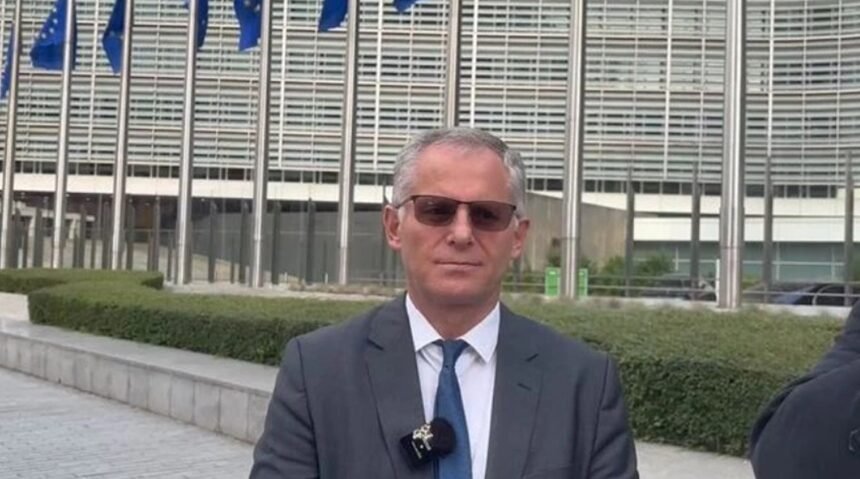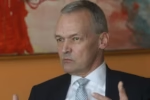Kosovo’s chief negotiator, Besnik Bislimi, has accused Serbia’s chief negotiator, Petar Petković, of making false and misleading statements after the June 10 trilateral meeting in Brussels. According to Bislimi, Petković violated an agreement made during the meeting that both sides would refrain from distorting facts and would ensure media communications reflected the content of discussions accurately. Bislimi emphasized that Petković committed to not using the post-meeting press conference to introduce claims that were not addressed during the talks. However, Bislimi said that within less than 30 minutes, Petković broke both promises.
In his media appearance, Petković claimed that the Serbian side insisted on forming the Association of Serb-Majority Municipalities and presented a plan to de-escalate tensions in northern Kosovo. Bislimi strongly rejected these claims, stating that such topics were not even discussed during the trilateral meeting. He accused Petković of deliberately misleading the Serbian public and stressed that the actual discussions focused only on the fundamental principles and path forward for implementing the Basic Agreement. No agreement was reached on a broader agenda, and Serbia reportedly tried to abandon the proposed agenda altogether to introduce a new set of priorities.
Bislimi stated that Kosovo was ready to engage constructively on the points presented by EU envoy Peter Sørensen and to add other relevant issues. However, Serbia’s refusal to follow the agenda blocked discussion on at least eight other topics of mutual interest. He noted that after the trilateral meeting, the discussions continued in bilateral formats, but in his public statements, Petković failed to distinguish what was discussed in each setting, further misleading the public.
Bislimi revealed that Kosovo raised the issue with the EU envoy shortly after the press conference, leading to a quiet correction on the official website of the so-called “Office for Kosovo” in Serbia. However, the misleading version of events remains published across multiple Serbian media outlets. Moreover, Bislimi pointed out that the updated version of the statement kept the same timestamp and lacked any note indicating the change. He said this reinforces Serbia’s ongoing propaganda narrative aimed at fostering hatred, undermining the normalization process, and discouraging integration of Kosovo Serbs.







